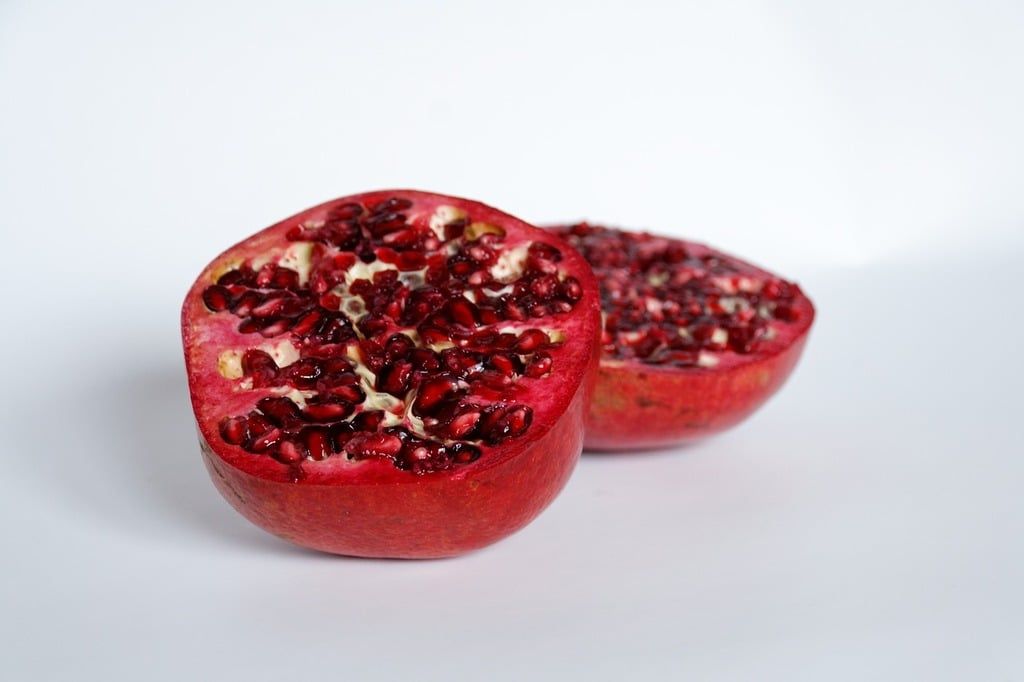
Unmasking the Power Packed Pomegranate: Your Gut's Best Friend
- Nov 18, 2025
Rolling your eyes at the effort of eating a pomegranate? Wait till you uncover its nutritious power packed inside that tough skin. This armored fruit comes loaded with vitamins, nutrients, dietary fiber, antioxidants and anti-inflammatory compounds. Those edible seeds (arils) aren't just a sweet/tart treat, but a boon to your gut too.
When it comes to dietary fiber, nothing screams importance louder than your digestive system. You'd be surprised to learn that majority of Americans don't hit their daily fiber quota. Nailbiting, isn't it? The 2020-2025 Dietary Guidelines for Americans recommends 22 to 28g of fiber per day for women and 28 to 34g for men. Half a cup of pomegranate seeds provides you with 10%-16% of your day’s dietary fiber needs.
But here's the kicker - the fiber in these ruby seeds is a magic potion against constipation, with 80% of it being insoluble. For those unfamiliar with science jargon, insoluble fiber adds bulk to your stool, ensuring it takes an express track through your intestines.
And if you were thinking about cheating your way to health by drinking pomegranate juice, think again, as it houses minuscule fiber and won't bless you with the same fiber benefits.
Let us introduce you to the notorious gang of FODMAPs (fermentable oligosaccharides, disaccharides, monosaccharides, and polyols). These carbs could be blamed for bloating and gas in some people. Those following a low FODMAP diet to manage irritate bowel syndrome (IBS) - listen up, a 1/4 cup serving of arils fall under the low FODMAP category.
Now, let's take you on a trip to your gut, which is home to numerous bacteria, fungi, and viruses. Together, they form the gut microbiome, which, when balanced, promotes the growth of helpful bacteria and impedes the expansion of disease-causing ones. Your gut goes into chaos, termed dysbiosis, when this equilibrium is disrupted. But don't worry, pomegranate by your side would ensure your gut's balance dances in harmony.
Bonus: Pomegranates bear micronutrients called polyphenols, including one named ellagic acid present in abundance in the peel. This compound, with its anti-inflammatory properties, can keep rogue inflammation, leading to gut tissue damage, in check.
Gobsmacked by the benefits yet? There's more! Regular consumption of fiber and anti-inflammatory foods like pomegranates can cut down the risk of colon cancer. Research points to a particular polyphenol in pomegranates, ellagitannins, that bolsters the immune system and aids in your body's fight against tumors.
Now the plot twist. Despite being power-packed, pomegranates aren't for everyone. Those on a low-fiber diet or suffering from intestinal narrowing or other conditions that raise the risk of bowel blockage must proceed with caution.
But don't discard the peel after you plunder all the arils. Contrary to popular belief, the tough pomegranate peel is a treasure chest of beneficial nutrients. And for science lovers, researchers are scratching their heads trying to extract these compounds for potential use in supplements or food items.






